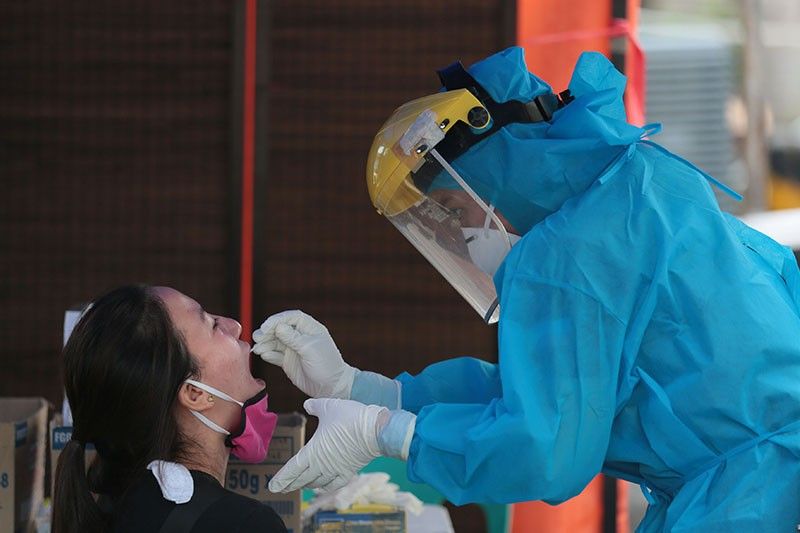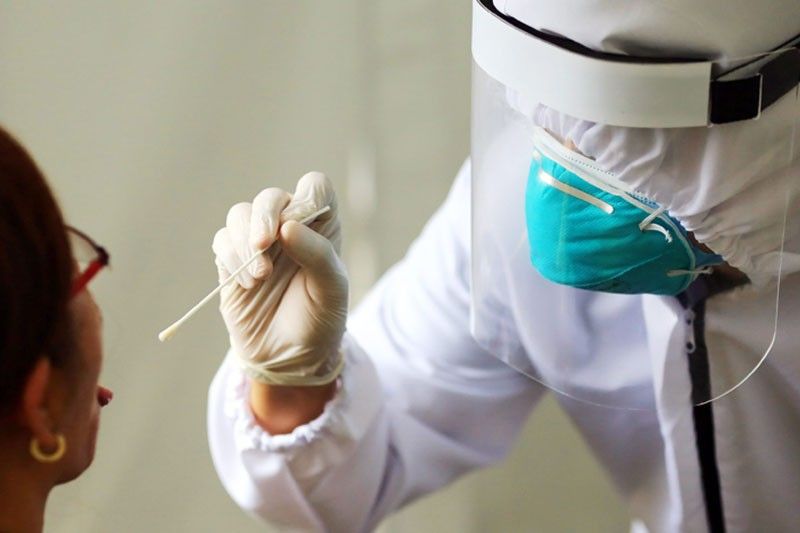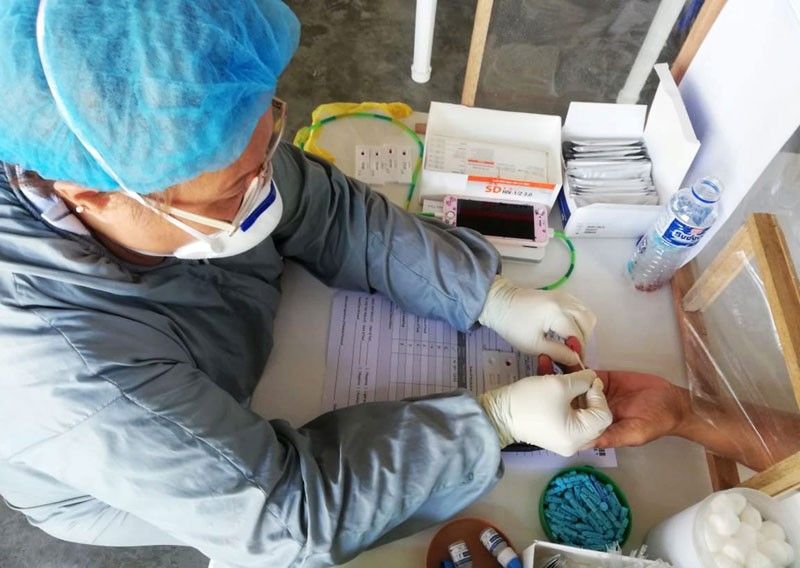There are two kinds of COVID-19 tests used in the Philippines. How are they different?

MANILA, Philippines — As the Philippines starts to reopen its economy, medical groups and the private sector are debating whether rapid antibody tests for COVID-19 are a reliable screening tool for workers.
The Philippines is currently using two kinds of COVID-19 tests. What are these tests and how are they different?
The RT-PCR test

A health worker undergoes swabbing for COVID-19 at the Mandaluyong Medical Center in this undated file photo as the local government starts mass testing for the virus. The STAR/Walter Bollozos, file
The Reverse Transcription Polymerase Chain Reaction (RT-PCR) test is considered the “gold standard” in testing for COVID-19.
It makes use of nasal and throat swabs to detect the presence of the virus. The swabs are sent to labs and results are usually available in 12 to 24 hours. These tests are 95-97% accurate.
All 28 COVID-19 test centers approved by the health department use RT-PCR test kits. In addition to these centers, there are five accredited GeneXpert machines which make use of "a rapid, real-time, in-vitro RT-PCR test," according to the Department of Health.
In a virtual press conference held by medical groups, Philippine Society of Microbiology and Infectious Diseases president Issa Alejandria said RT-PCR tests should be reserved for those exhibiting symptoms of COVID-19, have a history of contact with a COVID-19 patient, or are suspected probable cases.
The rapid antibody test

A medical worker takes a blood sample from a resident in Quezon City yesterday as part of Project ARK’s ongoing massive rapid testing initiative in the city in partnership with Mayor Joy Belmonte. The STAR, file
Rapid antibody tests make use of blood samples to measure antibodies which are the body’s response to fighting an infection. The blood samples are sent to hospitals and results can be available as soon as 15 minutes after.
PSMID's Alejandria cautioned the private sector against the use of rapid antibody test kits to clear their employees for work.
Alejandria said these tests have "no added value" when it comes to testing those who are asymptomatic. She added that false positive results from these tests could result in the following: the unnecessary isolation of workers which will prevent them from working, wasted Personal Protective Equipment (PPE) and wasted human resources for contact tracing.
She said that the more cost-effective strategy for companies would be to maintain minimum health standards which include: social distancing, hand washing, proper ventilation, refraining from spitting, and daily symptom screening.
She adds that these standards should be maintained by everyone, including people who have already tested negative for COVID-19.
Private sector defends rapid antibody tests
In response to calls for caution, Presidential Adviser on Entrepreneurship Joey Concepcion on Wednesday defended the use of rapid antibody test kits to screen for COVID-19.
He said that these kits are being used by other countries that have controlled the virus. Concepcion, who also leads the private sector initiative Project Antibody Rapid test Kit (ARK), said that the Presidential Security Group (PSG) uses these kits to screen those who enter Malacañang.
It was reported Wednesday that 160 members of the PSG tested positive for COVID-19.
The Philippines currently has a total of 13,221 COVID-19 cases and a death toll of 842.
- Latest
- Trending


































